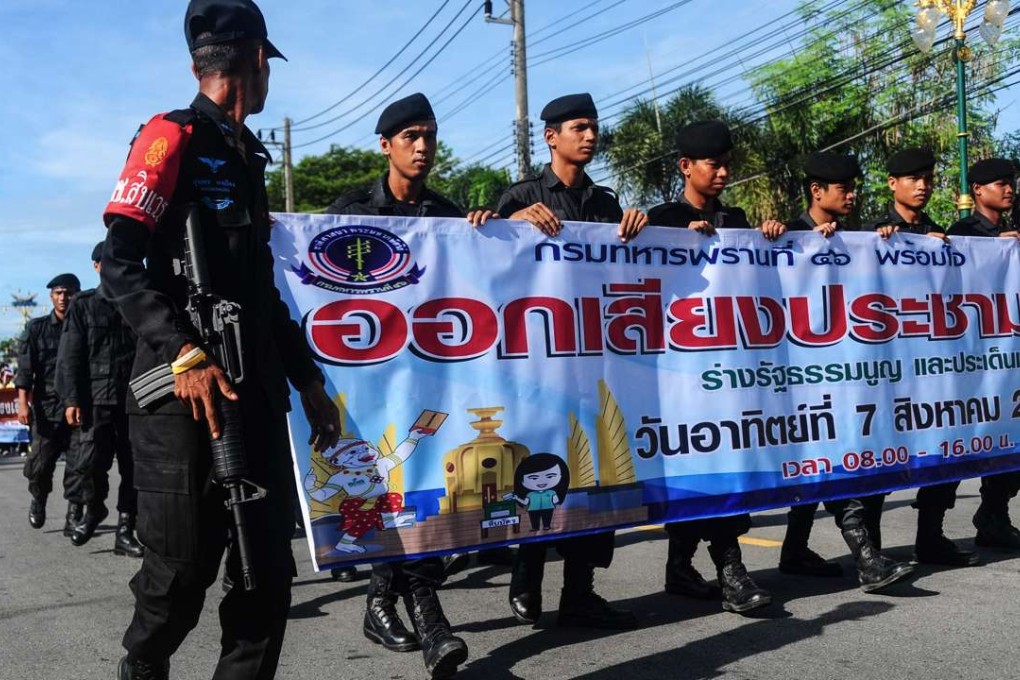Asian Angle | Why no one wants to rule Thailand other than the military

While it is always topsy-turvy and unwieldy, Thailand’s political environment has rarely been as tumultuous as in the past decade, characterised by recurrent street protests along pro- and anti-establishment lines.
At issue has been a fragile and contested democracy whereby election winners were inevitably ousted by the powers-that-be who eventually proved unable to win a poll. But Thailand has now reached a new political plateau in the wake of the military government’s successful constitutional referendum that sets the political direction for the foreseeable future in view of the ageing king’s ailing health and its attendant royal transition.

Clearly, the military is now poised to supervise Thai politics during the royal twilight and thereafter. Whether this bodes good or ill for Thai democracy will depend on the ruling generals under the National Council for Peace and Order. If the junta opts for a civil-military compromise and mutual accommodation, it could later lead to a gradual military withdrawal and the return of a cleaner and more workable democratic system. But if the generals stay for the long haul with rising abuses of power, Thailand may end up with more confrontation and mayhem than in the recent past as popular sentiments would turn against the military.
Thailand’s ‘day of reckoning’ delayed? Junta has delivered stability but critics warn fundamental problems remain
Until the referendum on August 7, the forces controlled by and aligned with former Prime Minister Thaksin Shinawatra invariably triumphed at the polling booth. Elections in 2001, 2005, 2007, and 2011 all produced convincing victories for the Thaksin clan, even while his parties were dissolved by the judiciary twice – in 2007 and 2008 – and his associated governments overthrown by the military in 2006 and 2014, the latter spearheaded by his younger sister Yingluck Shinawatra. Thaksin’s political juggernaut would also have won elections in 2006 and 2014 had they not been nullified by the courts. When Thailand had its first-ever constitutional plebiscite in August 2007, Thaksin told his supporters to let it past to speed up the subsequent elections. The result was a 57 per cent voter turnout and as great a percentage voting in favour.


